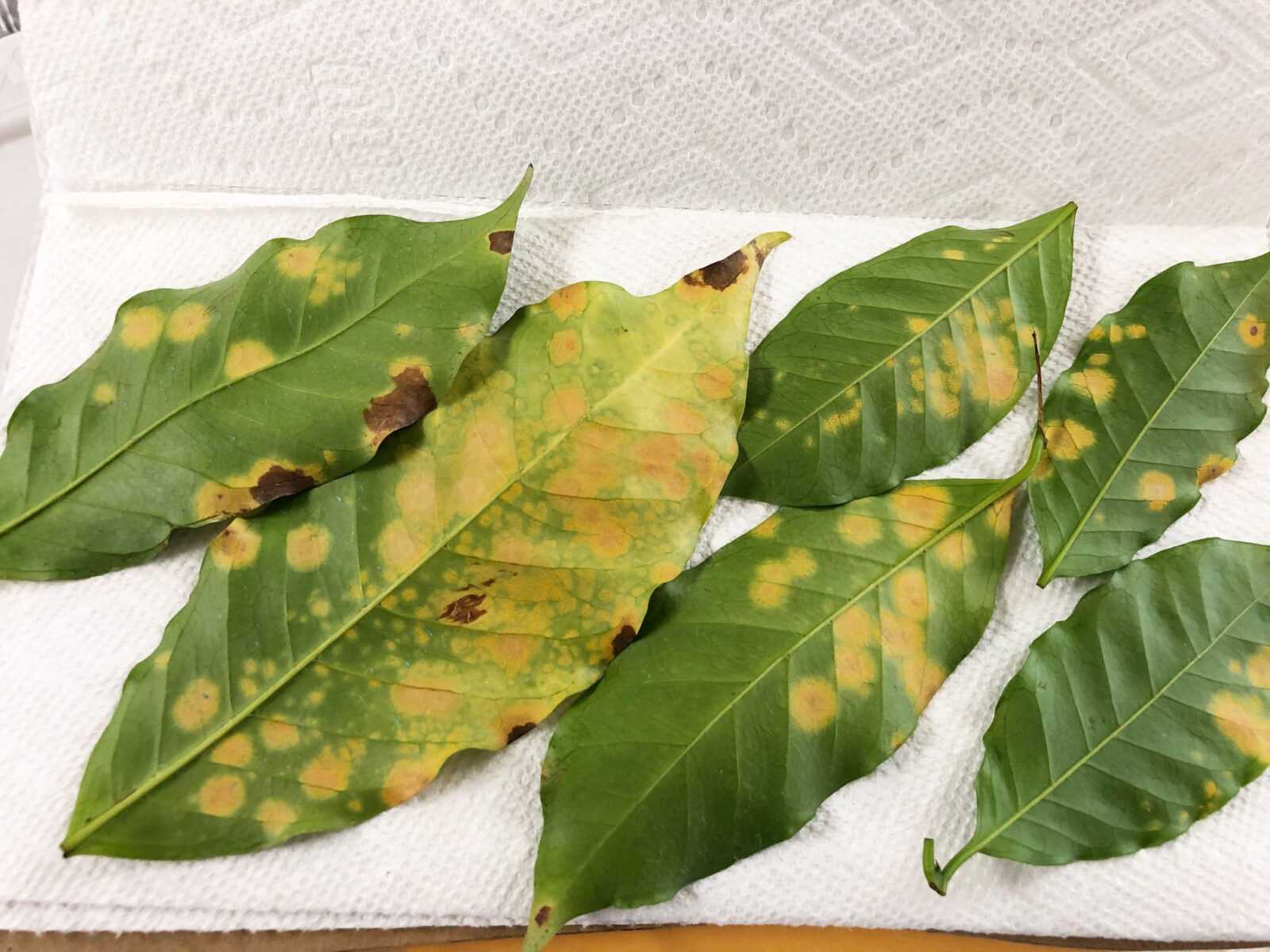HONOLULU, Hawai`I, U.S. – The Hawai`i Board of Agriculture (Board) today approved the expansion of coffee quarantine areas to include the islands of O`ahu and Lana`i due to the coffee leaf rust (CLR), a fungus that threatens Hawai`i’s important coffee industry. CLR was first detected in the state in October 2020 on Hawai`i Island and Maui. In November 2020, Hawai`i Island and Maui were designated by the Board as CLR-infested areas under Plant Quarantine Interim Rule 20-1 which restricted the movement of coffee plants, plant parts and other CLR hosts from those infected islands.
CLR was subsequently detected on the islands of O`ahu and Lana`i in January 2021.
Today’s board action includes O`ahu and Lana`i under the interim rule in an effort to help prevent the spread of CLR to Kaua`i and Moloka`i. The quarantine restrictions for O`ahu and Lana`i go into effect tomorrow.
This interim rule does not affect the movement of roasted coffee or the export (out-of-state) shipments of coffee plants and plant parts, green coffee beans, used coffee bags, or other CLR carriers, provided that they are exported directly from a CLR-infested area and are not transshipped through a CLR uninfested area in the state. Interisland movement of regulated CLR host material may be conducted under permit issued by the Plant Quarantine Branch (PQB) of the Hawai`i Department of Agriculture (HDOA).
Anyone who violates the interim rule is subject to a misdemeanor offense and may be fined up to $10,000. A second offense committed within five years of a prior conviction may result in a fine of up to $25,000.
In a related action, the Board approved a request from the U.S. Department of Agriculture’s Daniel K. Inouye Pacific Basin Agricultural Research Station (PBARC) to shorten the one-year quarantine on CLR-resistant coffee plants that have already been in quarantine at their facility since September 2020.
The tissue-cultured coffee plants were imported prior to the detection of CLR in Hawai`i for research into growing CLR-resistant varieties of coffee plants in the state. Tissue culture is a method to grow plants under sterile conditions. This technique is being used to propagate coffee plants in laboratory settings to reduce the risks of introducing or transmitting insects, diseases, or other plant pests and pathogens.
CLR is a devastating coffee pathogen and was first discovered in Sri Lanka in 1869 and can cause severe defoliation of coffee plants resulting in greatly reduced photosynthetic capacity. Depending on CLR prevalence in a given year, both vegetative and berry growth are greatly reduced.
There are multiple long-term impacts of CLR, including dieback, resulting in an impact to the following year’s crop, with estimated losses ranging from 30 percent to 80 percent.
For information on the CLR quarantine and permit requirements, contact the PQB at (808) 832-0566.
Suspected CLR infestations should be reported to HDOA’s Plant Pest Control Branch at
(808) 973-9525.










